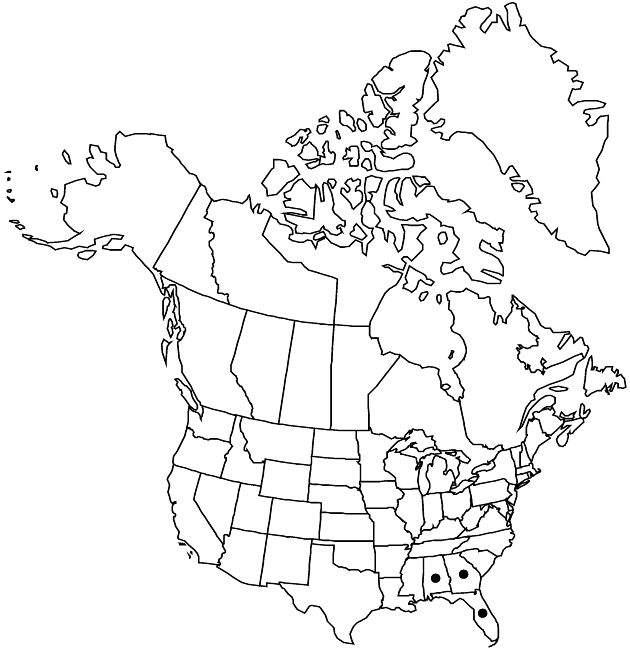Difference between revisions of "Brickellia cordifolia"
Sketch Bot. S. Carolina 2: 290. 1823.
imported>Volume Importer |
imported>Volume Importer |
||
| Line 57: | Line 57: | ||
|publication year=1823 | |publication year=1823 | ||
|special status=Endemic;Conservation concern | |special status=Endemic;Conservation concern | ||
| − | |source xml=https:// | + | |source xml=https://bitbucket.org/aafc-mbb/fna-data-curation/src/2e0870ddd59836b60bcf96646a41e87ea5a5943a/coarse_grained_fna_xml/V19-20-21/V21_1248.xml |
|tribe=Asteraceae tribe Eupatorieae | |tribe=Asteraceae tribe Eupatorieae | ||
|genus=Brickellia | |genus=Brickellia | ||
Latest revision as of 20:09, 5 November 2020
Perennials, 50–150 cm (caudices slender). Stems branched, pubescent. Leaves opposite; petioles 10–40 mm; blades 3-nerved from bases, deltate-ovate to lance-ovate, 30–150 × 20–100 mm, bases subtruncate to cordate, margins coarsely to finely serrate, apices acuminate, abaxial faces minutely pubescent and gland-dotted, adaxial faces sparsely puberulent. Heads (erect in flower and fruit) in corymbiform or paniculiform arrays. Peduncles 10–25 mm, glandular-pubescent. Involucres broadly campanulate, 10–12 mm. Phyllaries 28–35 in 4–5 series, greenish, often purple-tinged, 4–7-striate, unequal to subequal, margins scarious (ciliate); outer narrowly lanceolate to lance-ovate (glandular-pubescent, apices long-acuminate), mid lanceolate (apices acute to acuminate), inner narrowly lanceolate (apices acute to obtuse, recurved, pubescent, often gland-dotted). Florets 35–45; corollas pale yellow-green, often purple-tinged, 6–7.2 mm. Cypselae 4.5–5.5 mm, hispidulous to glabrate; pappi of 38–46 purple-tinged, barbellate bristles.
Phenology: Flowering Aug–Oct.
Habitat: Moist pine and oak woodlands
Elevation: 10–100 m
Distribution

Ala., Fla., Ga.
Discussion
Of conservation concern.
Selected References
None.